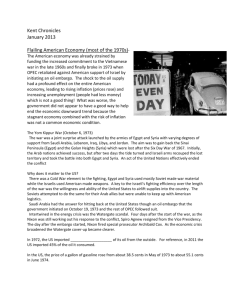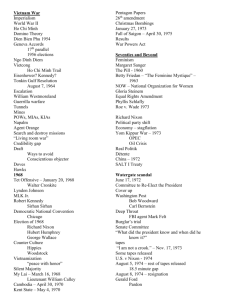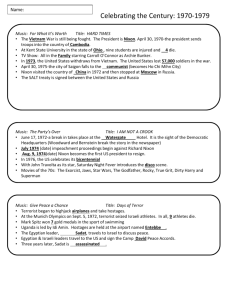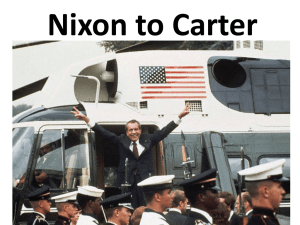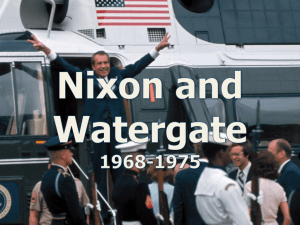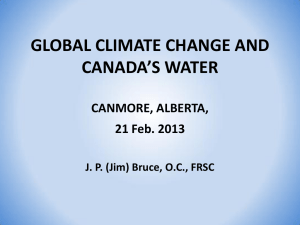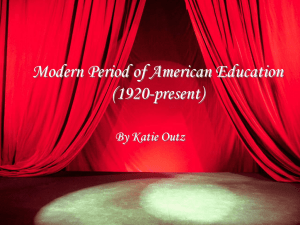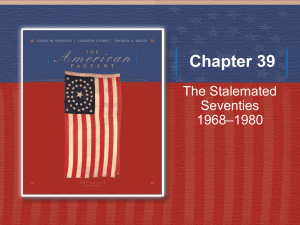The Oil Crisis Begins By the late 1950`s, the demand for oil in the
advertisement
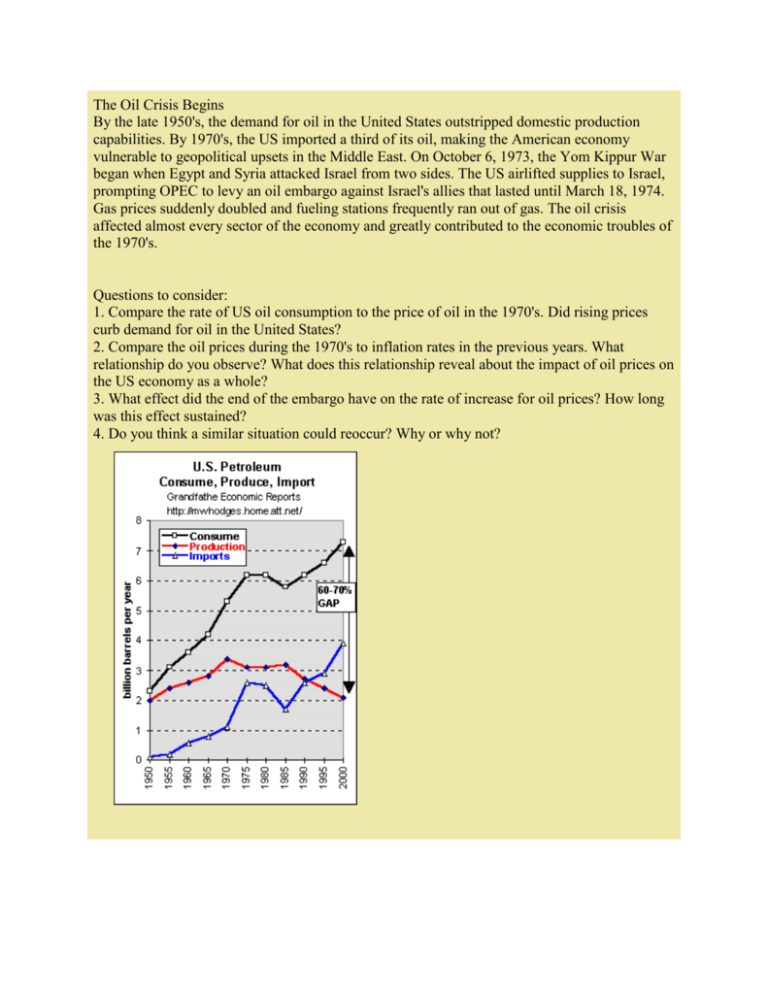
The Oil Crisis Begins By the late 1950's, the demand for oil in the United States outstripped domestic production capabilities. By 1970's, the US imported a third of its oil, making the American economy vulnerable to geopolitical upsets in the Middle East. On October 6, 1973, the Yom Kippur War began when Egypt and Syria attacked Israel from two sides. The US airlifted supplies to Israel, prompting OPEC to levy an oil embargo against Israel's allies that lasted until March 18, 1974. Gas prices suddenly doubled and fueling stations frequently ran out of gas. The oil crisis affected almost every sector of the economy and greatly contributed to the economic troubles of the 1970's. Questions to consider: 1. Compare the rate of US oil consumption to the price of oil in the 1970's. Did rising prices curb demand for oil in the United States? 2. Compare the oil prices during the 1970's to inflation rates in the previous years. What relationship do you observe? What does this relationship reveal about the impact of oil prices on the US economy as a whole? 3. What effect did the end of the embargo have on the rate of increase for oil prices? How long was this effect sustained? 4. Do you think a similar situation could reoccur? Why or why not? Citations: The graph of US oil consumption and imports appears at:http://www.eere.energy.gov/vehiclesandfuels/images/facts/fotw376a.jpg The graph of oil prices appears at:http://inflationdata.com/inflation/images/charts/OilPrices.gif Coping with the Energy Crisis Top The 1973-1974 oil embargo led to dramatically increased prices for all types of fuel, including gasoline, home-heating fuel, and electricity. Prices for virtually everything else rose in response to high energy costs, causing record inflation. On November 7th, 1973, President Nixon appealed to the nation to make sacrifices in the name of conserving energy. He warned that the country was "heading toward the most acute shortages of energy since World War II" and outlined specific measures for citizens and lawmakers to adopt in order to cope. The president's comments illustrate the pervasive nature of the energy crisis and the adjustments Americans were compelled to make in response to it. Questions to consider: 1. What steps does President Nixon ask Congress and other government entities to take? 2. What does the president ask of individual Americans? 3. What kind of lifestyle changes would individuals experience as a result of the energy crisis? 4. What effect do you think energy conservation measures had on American businesses? Nixon Address on Energy Crisis 1973.rtf Citations: President Nixon's address appears at: http://www.presidency.ucsb.edu/ws/index.php?pid=4034&st=inflation&st1=energy The "Sorry...No Gasoline" photo appears at:http://tesla.liketelevision.com/liketelevision/images/lowrez/tdih1017.jpg The photo of a gas line during the crisis appears at:http://images.encarta.msn.com/xrefmedia/sharemed/targets/images/pho/t049/T049147A.jpg TIME magazine's December 1973 cover appears at:http://img.timeinc.net/time/magazine/archive/covers/1973/1101731203_400.jpg
